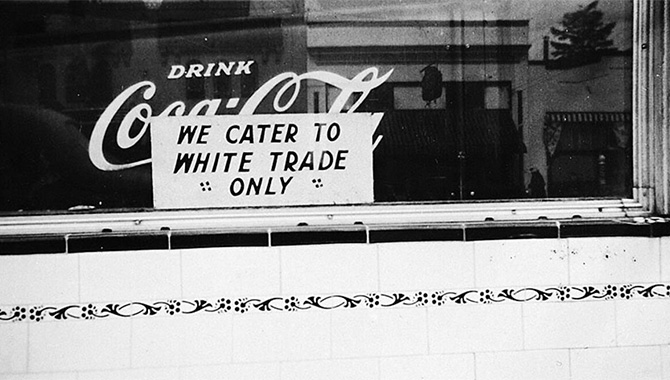That you may be one as the Father and I are one.
John 17:21 (as quoted by Father Greg Boyle in Tattoos on the Heart)
Today is Super Bowl Sunday, nearly a national holiday or at least a very big party. We, Americans, are also in the middle of Black History Month. The game today between the Kansas City Chiefs and the Philadelphia Eagles is historic because for the first time in the history of the NFL, two Black quarterbacks will be starting for their respective teams in a Super Bowl.
Many people (White) have long thought that the quarterback position required too much intelligence for African-American men to play. Today’s game will be a step forward in continuing to dispel that false myth. Austin Channing Brown, an author whose work centers on the Black experience in America, writes, “Our story is not about condemning White people but about rejecting the assumption—sometimes spoken, sometimes not—that White is right: closer to God, holy, chosen, the epitome of being.”
Conversations about race and racism make us uncomfortable. “It is risky and messy.” But as people of faith, who try to follow the way of Christ, what role, if any, does African American history, race, and racism play in our spiritual journey?
On Thursday, The Washington Post carried an article entitled, “The Chiefs proudly broke racial barriers. Kansas City erected them.” Mark Dent describes how Black players for the Chiefs were stars on the field for the Kansas City Chiefs in the 1960’s but they struggled to find housing in Kansas City which was “among the most redlined in the country.”
Dent said city planner J.C. Nichols built wonderful neighborhoods with tree-lined streets and “posh homes” in the middle of Kansas City and he “legally bound entire subdivisions to ban Black people from buying homes. To ensure no one broke the covenants he created homeowners associations to enforce the rules.” This practice was widespread in our country.
One star Black player, running back Curtis McClinton, lived in a basement apartment for $7 a week. McClinton scored the first touchdown for the AFC in Super Bowl I. His father was a prominent Kansas legislator, but Curtis struggled to find housing as well as other African American players.
Later, Dent says, “McClinton with financial backing from teammates, proposed an integrated apartment complex that featured central air conditioning and a pool shaped like a football. The city council denied the plan over zoning issues.” Undeterred, Dent writes, McClinton started “a branch of Jim Brown’s Black Economic Union to promote business opportunities for Black Kansas Citians and joining Freedom Inc., a local civil rights group, to push for housing reform.”
The work of activists and McClinton paid off Dent says when Kansas City passed a fair-housing ordinance that banned racial discrimination in July 1967. McClinton and other activists lived into the Prophet Amos’s words, “Let justice roll down like waters” (Amos 5:24).
Like McClinton, are we agents of positive change? Do we embrace Christ’s way of inclusion, dignity, and love for all of Creation?
Brennan Manning says, “That which is denied cannot be healed.” Austin Channing Brown writes, “When we talk about race today, with all the pain packed into the conversation, the Holy Spirit remains in the room. We can be honest. We can tell the truth. For only by being truthful about how we got here can we begin to imagine another way.”
Rohr writes, “In the United States, many of us are discovering that a large number of things we believed to be true—about our nation and ourselves—are not entirely true.” As people of faith, why would we fear the truth? Jesus says, “You will know the truth, and the truth will make you free” (John 8:31). Let’s sink into our past, good and bad, and learn, heal, and grow from it. May we be new creations rooted in God’s radical love and grace for all. May we follow the way of God and “do justice, love kindness, and walk humbly with God” (Micah 6:8).
My mother loved football; it was one of our bonds. She told me a story from her 40th high school reunion for the Wichita North High School, class of 1956. Mom said her class had a banquet and classmates spoke about their time at Wichita North, their history.
At one point, many of the Black members of the football team, which was very good, addressed their classmates. A middle-aged, strong, and athletic man spoke. “You will never know how much this team meant to us.” He stopped and mom said these men cried and cried and cried.
Finally, the man said, “After a road game, we stopped to eat at a restaurant, and they would not serve us because of our skin color. We were a team. We decided if they weren’t going to serve all of us; none of us would eat.” Black history matters.
I think that 1955 team from Wichita North went home physically hungry but spiritually full. They stood in solidarity with one another. “May we all be one as the Father and I are one,” Jesus said (John 17:21). Father Greg Boyle says, “Jesus stood with the outcasts and those relegated to the margins.” May we do the same.
I know Mom probably got some of the events mixed up in her story, but the truth was there. I’m especially intrigued because the star of that 1955 Wichita North football team was Curtis McClinton who went on to star for the Kansas City Chiefs, and he scored the first touchdown for the AFC in Super Bowl I. Maybe, most importantly, McClinton helped dismantle racist housing discrimination in Kansas City. May we learn from our history and stand as one.
Blessings and peace,
Craig

